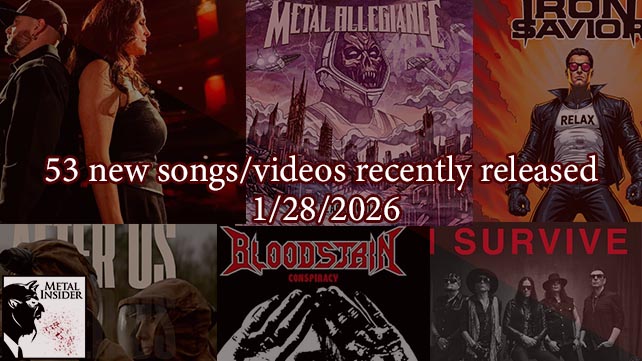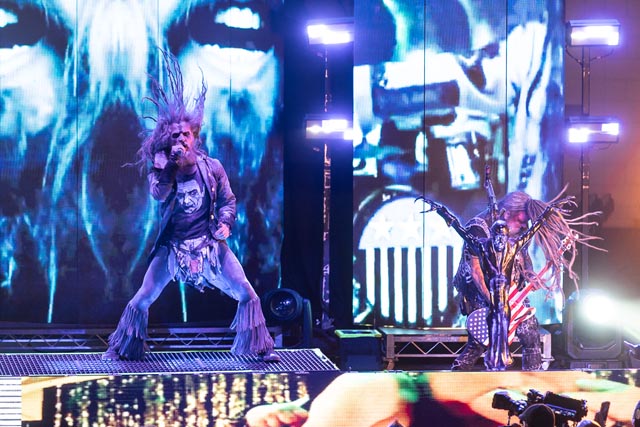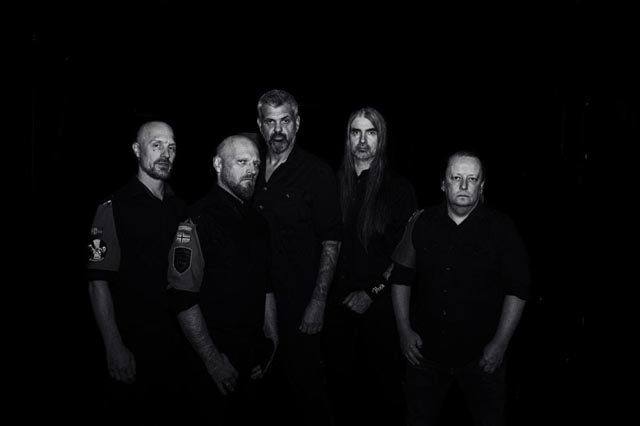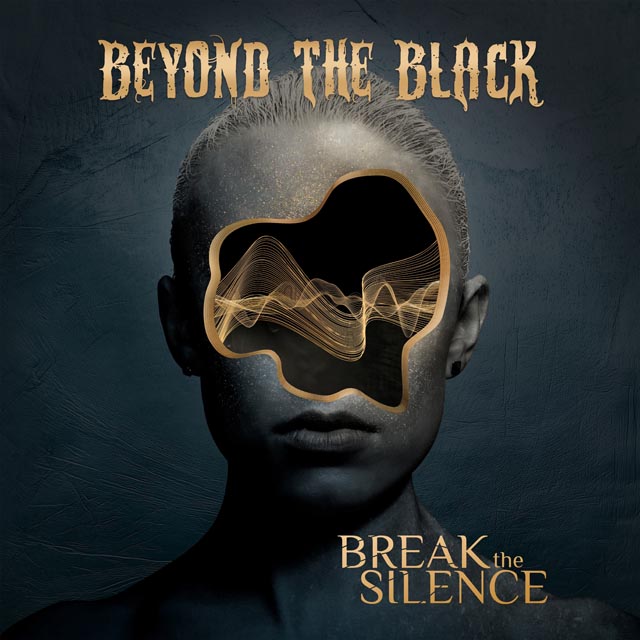Canadian Industrial Metal duo The Unravelling have had quite the journey. In 2010, they released their critically acclaimed debut 13 Arcane Hymns. At what seemed like the breakthrough they had so deserved, singer Steve Moore was diagnosed with cancer, putting the band on an indefinite hiatus. During this time, instrumentalist Gustavo de Beauville became heavily involved with soundtrack work and studio production (even more extensively than he already was). Through Moore’s positive mentality, he beat cancer and rejuvenated The Unravelling as quickly as he could. The band has recently released the “Revolt” single and has begun work on their long awaited follow up to 13 Arcane Hymns. Moore and Beauville caught up with Metal Insider to talk about their struggles, salvation and their future.
The overall sound has changed drastically from 13 Arcane Hymns to “Revolt.” Why did you guys decide to take The Unravelling in that direction?
Steve Moore: Well, the sound is always evolving, and the songs themselves will be quite different from each other too. “Revolt” is one piece of the new album’s puzzle. That being said, it has changed a lot since 13 Arcane Hymns. I know that Gustavo has his own reasons for the shift (soundtrack work, more production training, etc.), but I personally think it goes a bit like this. We want to do
something visceral and direct; more moody and atmospheric than overly technically focused. That requires a sense of space in the music where most bands would tend to fill it up. On the last album we were going for a full band sound. This time we’re not. A song can sound as cinematic as we want it to…we don’t really have the trappings of trying to fit into something. The lyrics have changed significantly, and this is partially because of my own ideas and concepts changing, or falling away, over the past 5 years. There’s much less personal struggle elements. The concept of the album is more of a “destroy the self-image” than building it up in any way, and that’s affected all aspects of what I do. We just know the way we like to explore sound and are honoring that – satisfying the inner teen in us who used to wait impatiently for Columbia House to arrive! The test is always if we feel it on a deep level.
Gustavo de Beauville: After trying the traditional metal band approach and realizing how cantankerous and unprofessional the scene was I switched gears. Reality kicked in hard and made me refocus on composing music for film and video games. I started teaching myself how to incorporate orchestral instruments into songs and discovered hybrid orchestral – where composers fused classical with electronic elements. Artists that really stood out for me during this time were Two Steps from Hell (Thomas Bergersen and Nick Phoenix), Troels Folmann, Clint Mansell, Hans Zimmer and John Murphy. These are guys that were actually earning a living with music. Trent Reznor also provided a lot of inspiration. Hence the radical shift away from drums, bass, guitars and vox to “whatever I need to craft the track”. Guitar is the instrument that I grew up playing but now I feel equally as ease using synthesizers, arpeggiators, preprogrammed beats or even a hang drum to make music.
Steve, about a year after the release of 13 Arcane Hymns you were diagnosed with cancer. If you don’t mind, what does that do to a person and how do you overcome it as you did? What kept you going?
SM: I was very scared at first and, of course, didn’t know what was going to happen. My family and friends were more worried than I was, I think, because I had a sense that it was going to work out. Going into the surgeries, I think it was an inner clarity that kept me going – meditation, spirituality, they’re both misunderstood and over-used words, but I’ve looked inward for a long time and this was an opportunity to do just that. This brought some awareness and comfort. I liked that I could read and take time alone with no expectations of me. I’d go to the park with a Krishnamurti book and just practice. Nowhere to be. I was disillusioned with music at the time so was not writing much at all. It took a few years to get that back.
Gustavo, during the five year hiatus you became involved with soundtrack work and other types of production. How did you get involved with this kind of work and was this a logical step for you in your career?
GDB: I couldn’t stop making music and the band was on pause so I had to find a new course. Luckily around this time a video game studio heard one of my orchestral tracks and called me to ask if they could use it in an upcoming first person shooter. It was quite exciting to collaborate with guys who were equally attracted to dark and demented themes. I would get these insane phone calls like “Hey Gus we need some background tracks for a hell stage, where demonic babies are running around but when they get close to you they explode because they’re actually time bombs, could you do it?” I was in bliss man!
Explain how The Unravelling started and why you two have chosen to remain a two-piece.
GDB: The Unravelling has always been a duo in my opinion – our styles complement each other well and a mutual respect has grown strong between us over time. The truth is I make the music that I want to hear and Steve imparts his vocal interpretation on the tracks. I can’t even imagine how he does it because I cannot sing. It must be like an audio version of a Rorschach test I would imagine. I’m not sure I could do it in reverse, if Steve handed me a page of lyrics and said “Hey write music for this” I’d probably have to lock myself in the studio with a Sonoran toad for a few days and hope for the best.
SM: I answered Gustavo’s ad looking for a vocalist for songs he’d developed on his own. The first song I heard was the instrumental for what would become “Becoming Chaos”. I remember being intrigued, because most of the stuff you normally hear is very sub-genre specific (speed metal, power metal, etc.) and this had a more melodic mentality to it. A lot of emotion and space for vocal expression. So we got together and clicked right away – I think that both of us being Dead Can Dance fans helped seal the deal! We would record weekly from then onwards. As far as remaining a two piece, there are a few reasons. The main one, I’d say, is that the two of us have a unique musical connection, and we’re like brothers in a way. Our backgrounds and styles/approaches end up complimenting each other and they make the music more original. For example, Gus will have a track with heavy gothic influences and I’ll add hardcore, punk or rock and roll. Also, with so many bands to choose from all using similar elements in their music, it’s fun artistically to be ourselves, to remain as a duo and do what we want. There’s an in-house feel to it all that we like.
How did music come into your lives and when did you decide that was something you wanted to pursue?
GDB: When I saw the music video for “Smells Like Teen Spirit” as a teenager I thought it was the coolest shit I’d ever seen. That led me to discover all the cool bands from the 90’s that I could like (Soundgarden, STP, Pearl Jam then heavier bands like Rage Against the Machine, NIN, Filter, Pantera, Tool etc.). The list could go on for a long time really.
SM: Probably around age 12 or 13 after getting into a few key albums like Public Enemy’s “Fear Of A Black Planet” and, of course, “Nevermind”. I got my first guitar and never really looked back. Later on I was heavy into bands like Faith no More, Alice in Chains, Tool, Sepultura, Skinny Puppy, etc. I admired artists who just expressed themselves without a filter; it was like a direct energy transference to me, and the idea that that was possible made me want to do it. I suffered with depression, so that’s likely another reason why honest music was so important to me and made a mark. I wrote lyrics from my early teens as well and started recording albums at around age 16. They were mostly terrible but had some good ideas. I kept doing it with various projects and bands over the years and neglected other areas of my life in the process. As far as now, music is my sport – it’s what my body/mind likes and I still get a deep enjoyment from it.
What can we expect from The Unravelling and what kind of band would you like to become at the end of the journey?
SM: We’re both very amped right now and excited to build a large catalog that we’re proud of artistically and that we would stand behind. That’s the number one priority; to fulfill that. So that will amount to a lot of singles and multiple albums over the next few years. There’s going to be a strong visual element with a lot of art from Shaun Friesen (www.freeen.ca) as well, as well as music videos directed by Doug Cook. As far as the band we want to become, we want to be a band who enjoys every step along the way, who are mindful and appreciative. Last time around we were impatient, so we’re more about being in the moment and advancing, reaching new people one by one. It feels like we get stronger every day.











